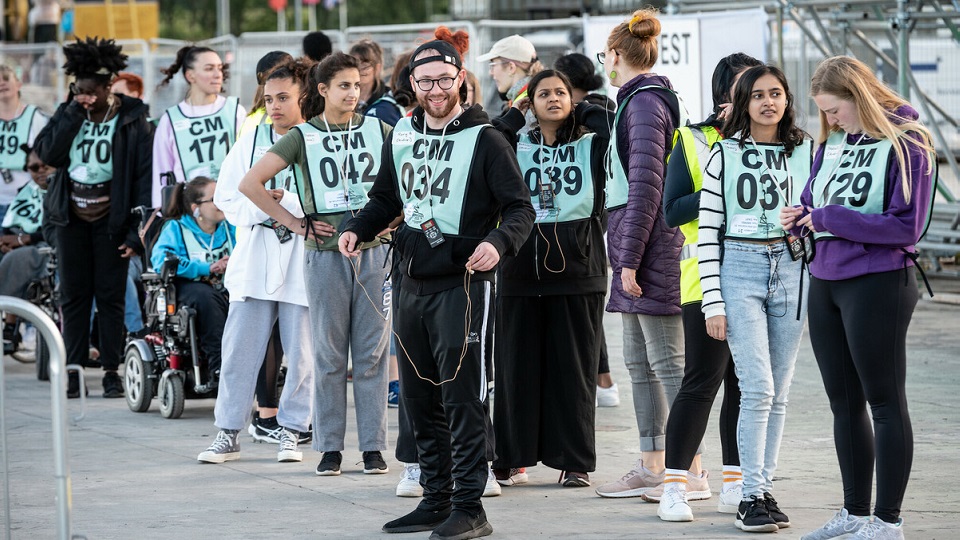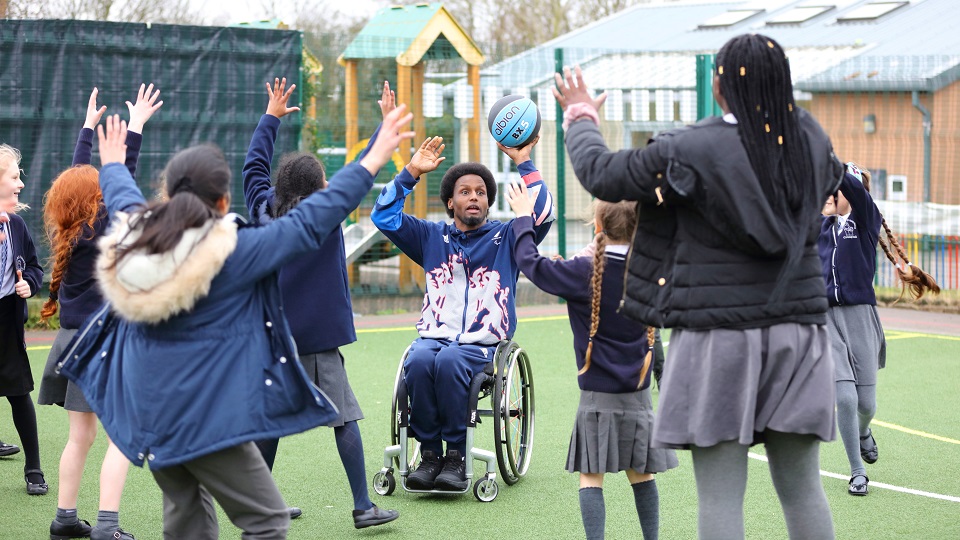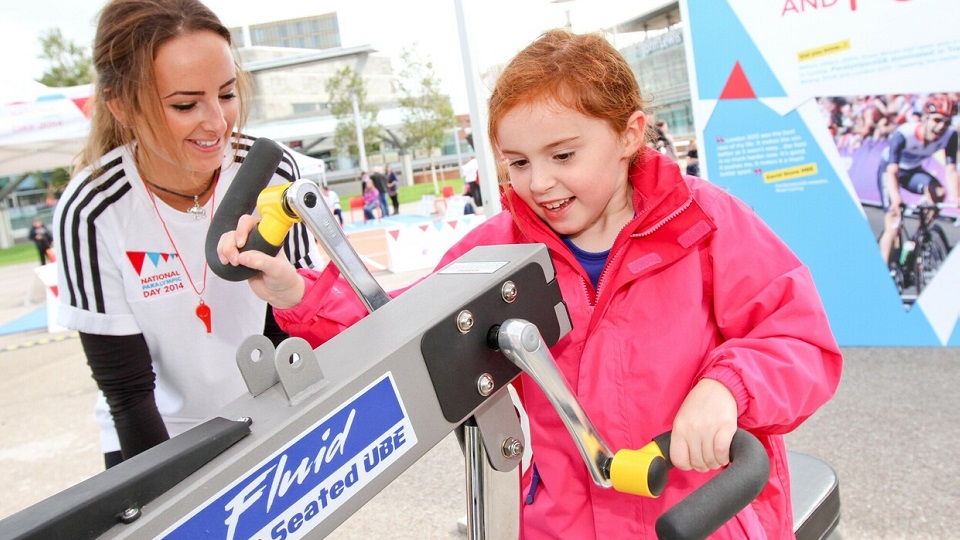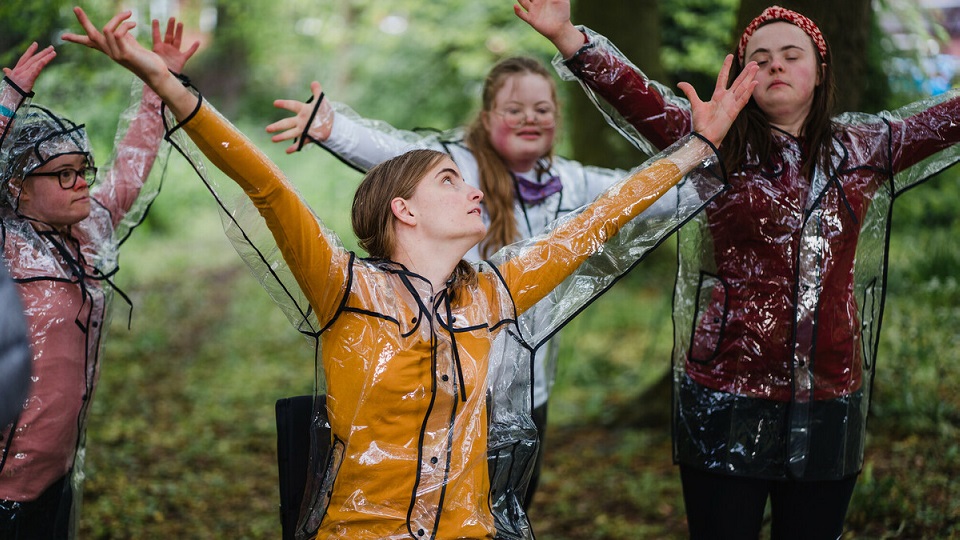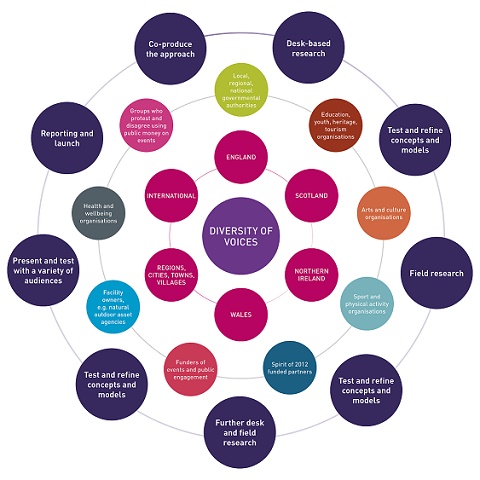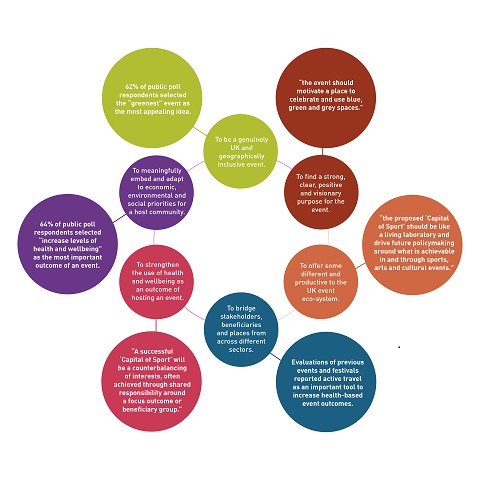Foreword
Ruth Hollis, CEO Spirit of 2012
"In 2023 our Inquiry into the Power of Events proposed a new event that would combine best practice from both the catalytic power of events and the detailed place-based interventions like Get Out Get Active, by initiating a new ‘UK City of Sport Competition’ based on a model similar to UK Cities of Culture. We asked Counsel, with Loughborough, to have a look 'under the bonnet' of the idea, test it with policymakers, funders, interested parties and the public to see whether it would add to the events ecosystem of the UK. I am delighted that this report sets out different models that could see physical activity integrated into a new or existing designation to bring the benefits seen by Cities of Culture to sport and physical activity. Throughout this study they were mindful of challenges faced by local authorities in terms of funding and have taken this into account when formulating their recommendations."
Background
Find out more about Spirit of 2012 and the 'Capital of Sport' project.
Underpinning considerations
The starting point of the feasibility study was the proposal from the Spirit of 2012 Inquiry into the Power of Events:
The creation of a UK City of Sport competition, modelled on the success of UK City of Culture with a focus on health and wellbeing
The key underpinning considerations for the study were:
- Readiness factors for places in the UK to host and the prominence of the placemaking agenda to include all types of ‘places’ in funding and policy decisions.
- Cost of living and economic factors creating challenges and opportunities around models for an effective Capital of Sport.
- Ability to build health and wellbeing drivers and innovation into a viable bidding and delivery model for a Capital of Sport.
- Opportunities and challenges to develop the event model based on the learnings from the City of Culture model and other iterations of this event, such as those across Europe.
- Stakeholder and public appetite for a Capital of Sport.
In the initial stages of the study, the original title ‘UK City of Sport’ was amended by the project team to ‘Capital of Sport’ to reflect early feedback that the word ‘city’ was viewed as exclusive and may inadvertently deter non ‘city’ geographies to engage with this feasibility study.
Approach
Over the course of the feasibility study the project team:
- Gathered evidence and insight from over 150 different of voices in England, Northern Ireland, Scotland and Wales through online public polling, interviews, presentations and workshops.
- Explored a range of previously hosted local through to international events and festivals through documentary analysis and event attendance and observations.
- Used a balance of evidence-based and visionary thinking across three stages to develop event models and concepts, through the use of an Ideas Incubation Group and working collaboratively with concurrent Spirit of 2012 strategic projects.
Findings from the initial review and consultation
The event industry in the UK is buoyant and estimated to be worth around £42billion. The feasibility study reviewed and discussed a selection of different events hosted in the UK and abroad to better understand where a ‘Capital of Sport’ could fit. A consultee remarked that in terms of the events market:
There is a commissioner market, investor market, delivery market and then a whole host of beneficiaries to consider. Finding what has worked well and what these different needs are is paramount to taking things to the next level.
(Feasibility Study Consultee, 2023)
The evidence produced from the review of previous events was analysed through adopting and adapting key principles from strategic decision making (such as, PESTLE analysis) to highlight what has worked well in the past and identifying some trends across different event concepts and models.
Political considerations
An event will need ‘buy-in’ from different governmental organisations and agencies.
Successful place-based events have a strong political backing, an emerging trend is for regional and city-based political support to drive this beyond a ‘city of’, for example the Liverpool City Region, Borough of Culture.
Economic considerations
An event will need to be affordable across the whole event lifecycle i.e. feasibility, bid, preparation, hosting, legacy stages.
Funds are drawn from a range of different sources, with a growing trend to base an event on a mixed investment model, for example the Great Run events which have a mixture of commercial, governmental in kind, and direct economic support.
Sociological and sporting considerations
An event will need clearly defined and engaged beneficiaries in the host community, moreover for this study an event that can demonstrate a connection to health and wellbeing.
The clarity of ‘who’ directly benefits from an event is mixed, with events like the European City of Sport or Britain in Bloom having a clear remit to target community beneficiaries. Moreover, events such as City of Culture reference the presence of health and well-being, but few events embed it as a primary underpinning drive or outcome.
Legal considerations
An event will need an accountability body and clarity on who is responsible for delivering and reporting on different stages of the event.
A mixture of centralized and decentralized ways of working in relation to control and accountability, for example the European City of sport model is managed much more as decentralized model, and the pressure is on the host place to comply with regulations and secure long-lasting impacts.
Environmental concerns
An event will need to consider varying aspects of sustainability, notably environmental sustainability.
A growing trend in recent events is to promote sustainability initiatives within the event delivery, however, less evidence found on how sustainability principles were present at the feasbility, bid and planning stages.
Progressed commentary and incubating ideas
The varying evidence sources yielded a number of discussion points and ways to productively develop models and concepts for a ‘Capital of Sport.’ These were collated into a series of opportunities and illustrative snapshots of evidence.
A ‘Capital of Sport’ concept has the opportunity…
To be a genuinely UK and geographically inclusive event
“The event should motivate a place to celebrate and use blue, green and grey spaces. Utilising existing spaces lends itself to the inclusiveness that you would need to promote.”
Feasibility Study Consultee, 2023
To find a strong, clear, positive and visionary purpose for the event
"The proposed 'Capital of Sport' should be like a living laboratory and drive future policymaking around what is achievable in and through sports, arts and cultural events.“
Feasibility Study Consultee, 2023
To offer something different and productive to the UK event eco-system
Evidence and insight demonstrated that to date, events in the UK have underutilised ‘health and wellbeing outcomes’ as a key contribution of an event to hosting communities.
Evaluations of previous events and festivals reported active travel as an important tool to increase health-based event outcomes. For example, 2022 Commonwealth Games and 2023 UCI Cycling World Championships.
To bridge stakeholders, beneficiaries and places from across different sectors
“A successful ‘Capital of Sport’ will be a counterbalancing of interests, often achieved through shared responsibility around a focus outcome or beneficiary group.”
Feasibility Consultee, 2023
To strengthen the use of health and wellbeing as an outcome of hosting an event
Health and wellbeing tested as the highest priority in public polling:
Of 10 outcome options, 64% of respondents selected “increase levels of health and wellbeing” as the most important outcome of a major event to them.
To meaningfully embed and adapt to economic, environmental and social priorities for a host community
Green event idea tested as the most popular in public polling:
From 5 event ideas, 62% of respondents selected the “greenest” as the most appealing idea to them.
Conclusions, and where to next?
Realising and creating a ‘Capital of Sport’ would require a bold pursuit for better evidence and thinking around shared cross-sector impacts of events in the UK. In this study, it is clear how a focus on health and wellbeing could coalesce event commissioners, designers, planners and host communities around a shared outcome.
Concept scenario session reflection comment, March 2024
Proposed bidding models
Three models for the creation of a ‘Capital of Sport’ to be realised:
- Competitive bid (one winner).
- Competitive bid (multiple winners from across the Home Nations).
- Competitive applications (multiple awardees through a clear criteria).
Proposed event concepts
Three concepts for the creation of a ‘Capital of Sport’ to be considered:
Enhancement of an existing event
Partner with the next City of Culture to embed health and wellbeing outcomes and strengthen the contribution of sport within existing infrastructure.
Wrap around a planned event
Partner with another major event (e.g. the 2028 Men's European Football Championships) to better embed health and wellbeing outcomes for the host places.
Standalone event
Design and deliver a standalone 'Capital of Sport' through a multiple winner model with a clear focus on promoting the use of events to bolster health and wellbeing outcomes in places of all shapes and sizes.
Headline recommendations
- Prospective event owner to secure early dialogue with key event partners to develop a ‘Capital of Sport’ to test further;
- Prioritise financial and environmental sustainability;
- Prioritise co-produced health and wellbeing approaches;
- Look to use the ‘Capital of Sport’ to align partners and agendas.
Find out more
Download and read the full technical report.
Policy briefing
Partners

Useful links
Image credits: Critical Mass rehearsal (Graeme Braidwood); dancers in the rain (Lee Allen, Critical Mass); athlete with girl (National Paralympic Day); children running with ball (Travel to Tokyo, BPA, Team GB); wheelchair basketball (Pip Rustage).
